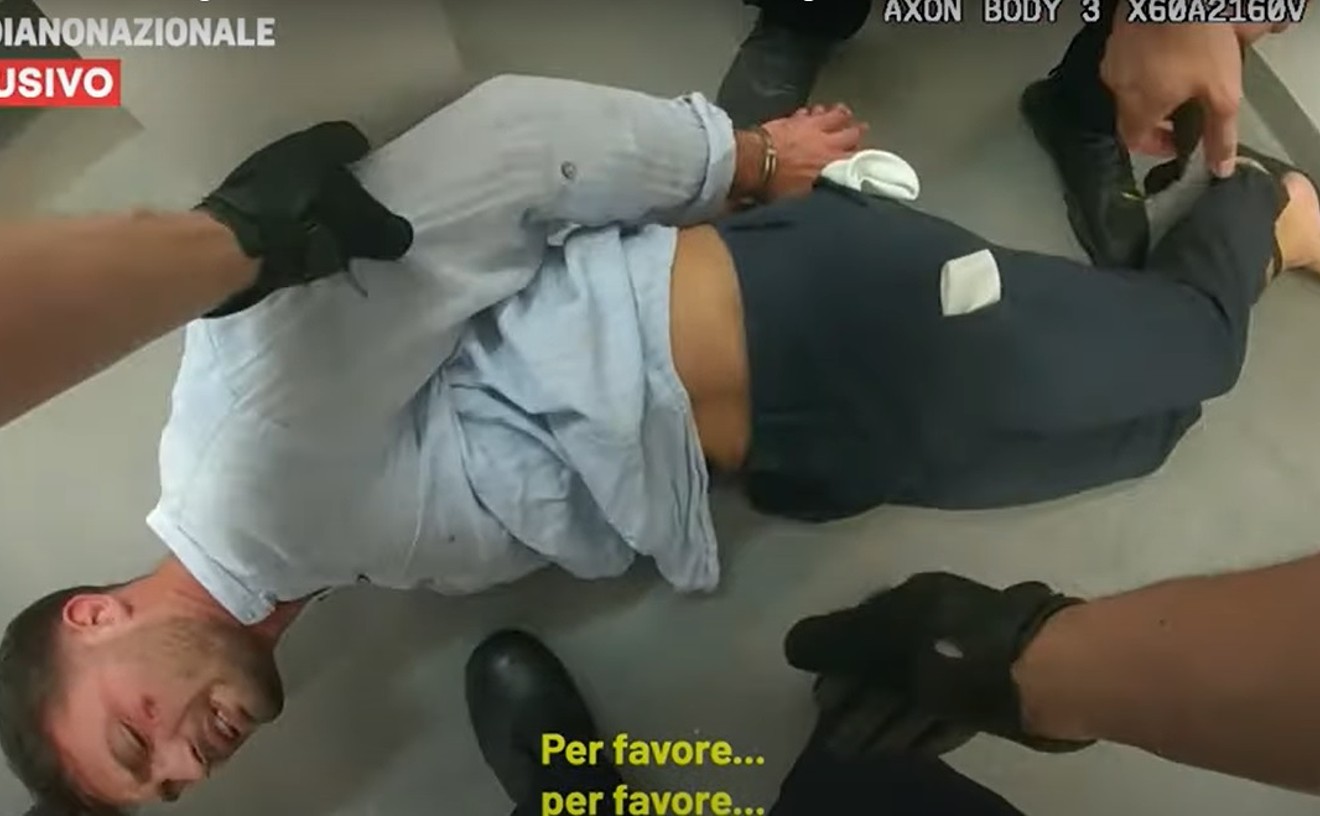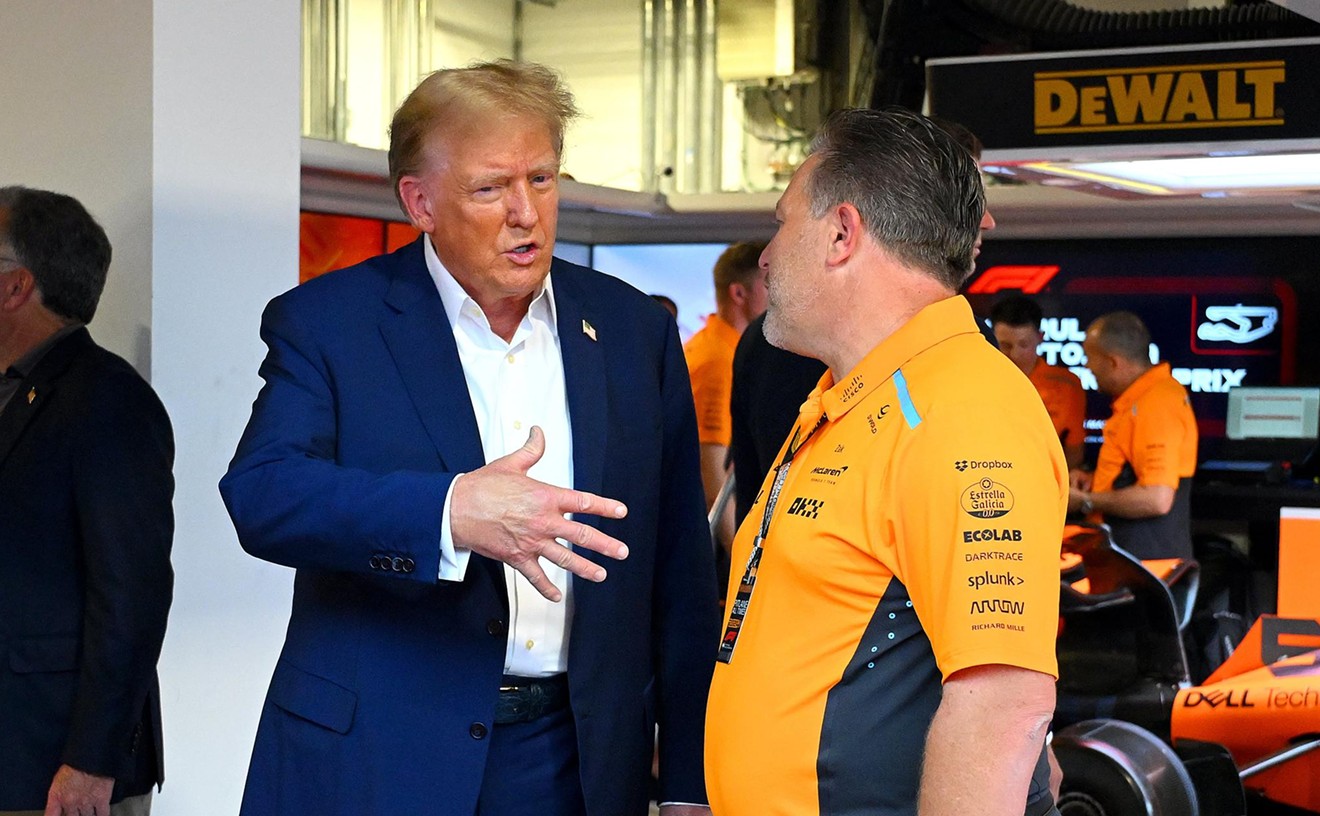Their latest target: an electric fence that separates the facility from the public (and protesters), located at 16450 SW 180th St. in Southwest Miami-Dade. After long suspecting the gate was installed as a direct attempt to buffer and deter protesters, Smash HLS contacted Miami-Dade County’s regulatory and zoning division earlier this year to inquire about the gate’s legality.
Following a months-long investigation, the county has confirmed that, indeed, WWP constructed the gate on a public road without permits.
“A permit for the fence was not found, and there has not been an agreement recorded to allow a fence [or] gate to be maintained in the public right-of-way at this location,” James Byers, chief of the Regulatory and Economic Resources Zoning and Public Works Plan Review Division, wrote in an email to New Times.
A WWP spokesman refutes the gate has “anything to do with animal rights people” and “was up there long before they started protesting the facility.
“They’re just out there to harass us and other groups doing what we do,” the spokesman said.
According to Byers, Neighborhood Code Compliance will issue a warning to Worldwide Primates this Monday, which will give the company 90 days to obtain a permit or remove the gate.
Smash HLS activist Kyle Krakow does not deny that his group plans to protest closer to the facility if the fence is removed. Specifically, they’d be able to get 150 feet closer.
“It would be great if we could be closer to the facility,” Krakow says. “But no matter what, we’re still gonna show up and protest, still be loud. We’re not talking about going onto their property; we would just be able to bother them more.”
WWP’s website describes the company as "a leading supplier of premium quality non-human primate models for research, including government, university, and pharmaceutical level facilities."
Krakow, however, says the company abuses animals in "cruel experiments."
"Really the ones being harassed are the monkeys," he says.
Last month, a Seminole Tribe member requested an injunction to shut down a similar facility, called Primate Products, which is located on the Big Cypress Seminole Reservation in Immokalee. The tribe member, Samuel Tommie, enjoys the nearby areas for meditation and cultural practices, according to the lawsuit, which claims the Primate Products operation is unethical and a public nuisance. It reads:
Primate Products performs “invasive, and sometimes, lethal surgeries on monkeys to remove plasma, serum, and tissue, such as fetal and ovarian tissue, for sale to other facilities for further experimental use." "They also quarantine, board, and train monkeys for use in experiments by other facilities. Defendants have denied sick and injured monkeys adequate veterinary care and have violently handled monkeys that were forced to live in filthy, barren and dangerous conditions.”










